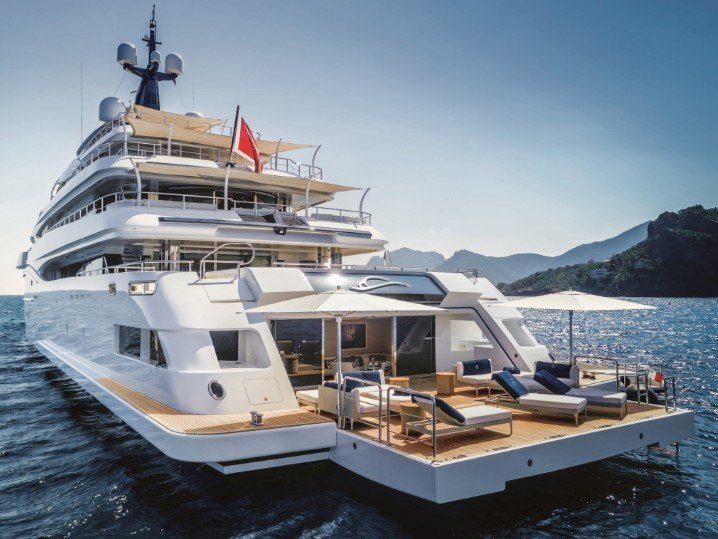
Boat Tips
Introduction to Boat Tips
Boating is an exhilarating and enjoyable activity, but it also requires responsibility and knowledge to ensure a safe and pleasant experience on the water. Whether you’re a seasoned sailor or a novice captain, these boat tips will help you navigate the waters with confidence.
Choosing the Right Boat
Selecting the perfect boat is crucial for your boating adventures. Consider factors such as size, purpose, and budget when making your decision. With various types of boats available, from sailboats to powerboats, there’s something for everyone.
Factors to Consider
When choosing a boat, think about your intended use, whether it’s fishing, water sports, or leisurely cruises. Additionally, consider the number of passengers you’ll typically have onboard and the storage space required for equipment and supplies.
Types of Boats
Explore the different types of boats available, including pontoons, deck boats, fishing boats, and yachts. Each type offers unique features and advantages, so research thoroughly before making a purchase.
Essential Safety Tips
Safety should always be a top priority when boating. Proper preparation and awareness can prevent accidents and ensure everyone onboard remains safe and secure.
Life Jackets and Safety Gear
Always wear a properly fitting life jacket while on the water, and ensure that all passengers have access to life-saving equipment such as flotation devices, fire extinguishers, and distress signals.
Weather Awareness
Stay informed about weather conditions before setting sail, and be prepared to alter your plans if severe weather is forecasted. Avoid boating in rough seas or high winds that could jeopardize your safety.
Navigation and Rules of the Water
Familiarize yourself with navigation rules and regulations to avoid collisions and conflicts with other boaters. Understand buoy markings and right-of-way rules to navigate safely through busy waterways.
Maintenance and Care
Proper maintenance is essential for keeping your boat in top condition and extending its lifespan. Regular upkeep and care will ensure smooth sailing for years to come.
Regular Cleaning and Inspection
Clean your boat regularly to prevent the buildup of dirt, grime, and saltwater corrosion. Inspect the hull, engine, and electrical systems for any signs of damage or wear and address issues promptly.
Engine Maintenance
Schedule routine maintenance for your boat’s engine, including oil changes, filter replacements, and tune-ups. Follow the manufacturer’s guidelines for proper care and servicing to prevent breakdowns on the water.
Storage Tips
When storing your boat, choose a secure location away from harsh weather conditions and environmental hazards. Cover your boat properly to protect it from UV damage, moisture, and pests during storage.
Boating Etiquette
Respect for fellow boaters and the marine environment is essential for a harmonious and enjoyable boating experience. Follow proper etiquette to maintain good relations with others on the water.
Respect for Other Boaters
Practice courtesy and consideration when sharing the water with other boaters. Yield to vessels with limited maneuverability and avoid creating wakes that could disrupt nearby boats.
Environmental Responsibility
Minimize your impact on the marine environment by disposing of waste properly and avoiding spills or pollution. Respect marine habitats and wildlife by observing no-wake zones and protected areas.
Noise and Speed Considerations
Be mindful of noise levels and speed restrictions in designated areas, especially near residential areas or wildlife sanctuaries. Keep noise to a minimum to avoid disturbing others and wildlife.
Navigating Rough Waters
Navigating through rough seas or challenging conditions requires skill and confidence. Learn how to handle your boat effectively in various situations to ensure safety and control.
Handling Waves and Currents
Adjust your speed and course to navigate safely through waves and currents, maintaining stability and control of your vessel. Use caution when crossing bars or navigating shallow waters with strong currents.
Maneuvering in Tight Spaces
Practice maneuvering your boat in tight spaces such as marinas, docks, and narrow channels. Mastering techniques like docking, anchoring, and turning will increase your confidence and precision.
Emergency Preparedness
Be prepared for unexpected emergencies while boating by equipping your vessel with essential safety gear and knowing how to respond effectively in crisis situations.
First Aid Kit and Emergency Contacts
Keep a well-stocked first aid kit onboard and familiarize yourself with basic first aid procedures for treating injuries or medical emergencies. Maintain a list of emergency contacts, including local authorities and marine rescue services.
Dealing with Engine Failure
In the event of engine failure, remain calm and assess the situation before taking action. Troubleshoot common issues like fuel leaks or overheating, and if necessary, use alternative propulsion methods or call for assistance.
Calling for Help
Know how to signal for help in an emergency using distress signals such as flares, flags, or radio calls. Stay in communication with nearby vessels or shore-based facilities to request assistance if needed.
Tips for Fishing Enthusiasts
For fishing enthusiasts, boating opens up a world of opportunities to explore new fishing grounds and reel in big catches. Follow these tips to enhance your fishing experience on the water.
Proper Gear and Equipment
Invest in quality fishing gear and equipment tailored to your preferred fishing style and target species. Pack essentials like rods, reels, tackle boxes, and bait to maximize your chances of success.
Best Fishing Locations
Research local fishing hotspots and consult nautical charts or GPS devices to locate productive fishing grounds. Look for features like underwater structure, depth changes, and baitfish concentrations to find fish-rich areas.
Enjoying Leisure Activities
Boating isn’t just about navigating the waters—it’s also about enjoying leisure activities and creating lasting memories with family and friends.
Water Sports and Recreation
Explore the thrill of water sports such as tubing, waterskiing, wakeboarding, and jet skiing. Rent or bring along equipment for your favorite activities and enjoy hours of fun on the water.
Picnics and Relaxation
Plan leisurely outings on your boat, complete with picnics, sunbathing, and relaxation. Anchor in scenic coves or secluded beaches to unwind and appreciate the beauty of nature from the comfort of your vessel.
Conclusion
By following these boat tips, you can enhance your boating experience and ensure safety, enjoyment, and respect for the waterways and fellow boaters. Whether you’re a novice or seasoned sailor, practicing good seamanship and responsible boating habits will lead to memorable adventures on the water.
FAQs (Frequently Asked Questions)
- What are the most important safety precautions for boating?
- Life jacket usage, weather awareness, and navigation rules are among the top safety precautions for boating.
- How often should I maintain my boat?
- Regular maintenance, including cleaning, inspection, and engine care, should be conducted according to the manufacturer’s recommendations and usage frequency.
- What should I do in case of a boating emergency?
- In case of an emergency, remain calm, assess the situation, and take appropriate action, such as using distress signals, contacting emergency services, or seeking assistance from nearby vessels.
- Where can I find information about local boating regulations?
- Local marine authorities, boating associations, and online resources provide information about boating regulations, navigation rules, and safety guidelines specific to your area.
-
What are some common etiquette guidelines for boaters?
- Boaters should practice courtesy, respect for others, and environmental responsibility, including minimizing noise and wake, disposing of waste properly, and avoiding disturbing marine habitats.



